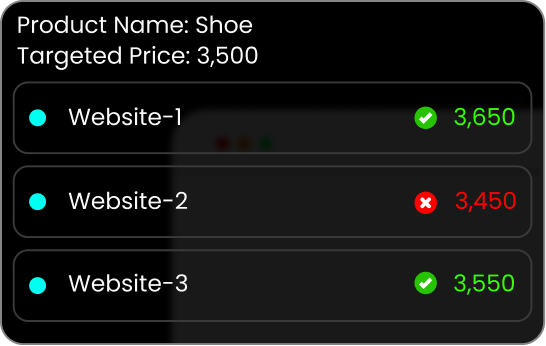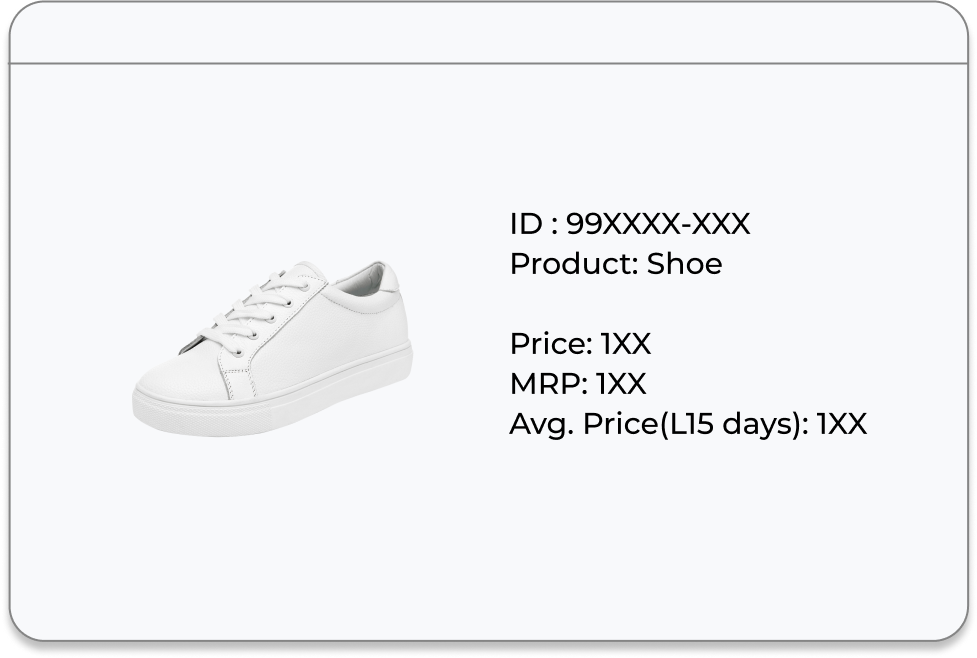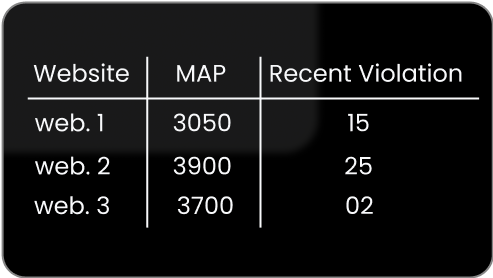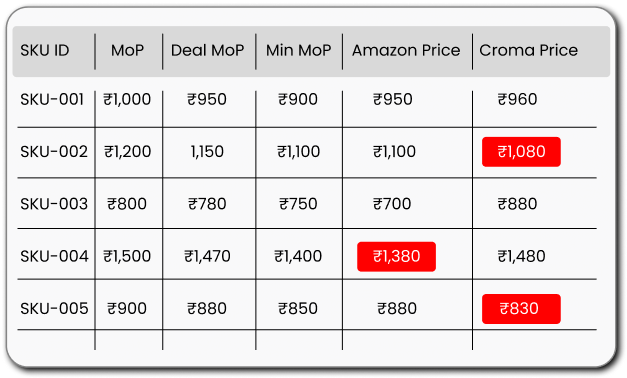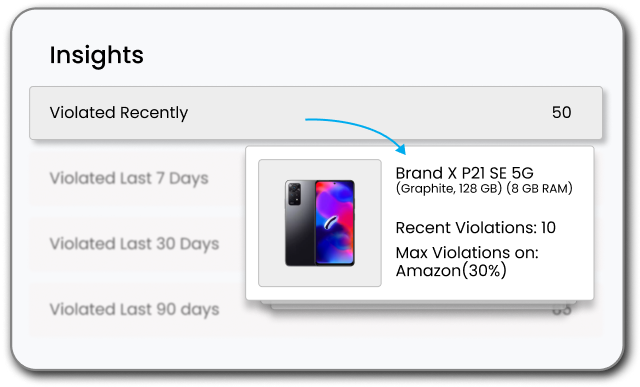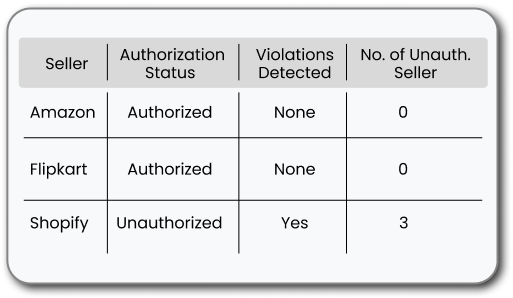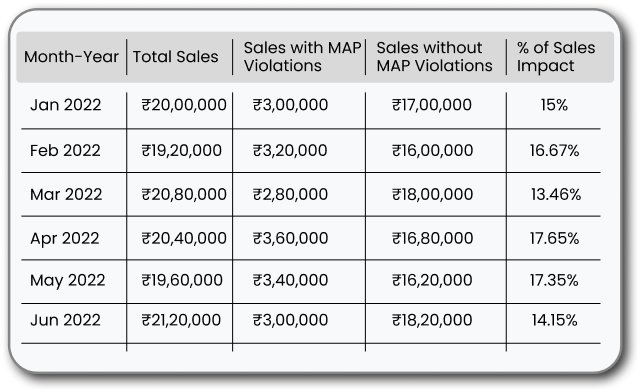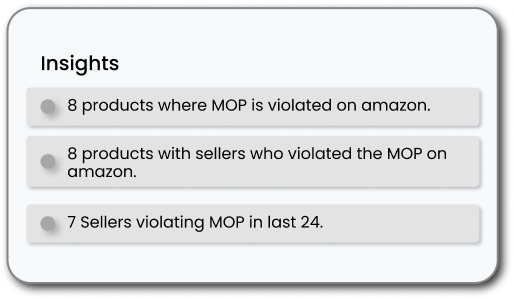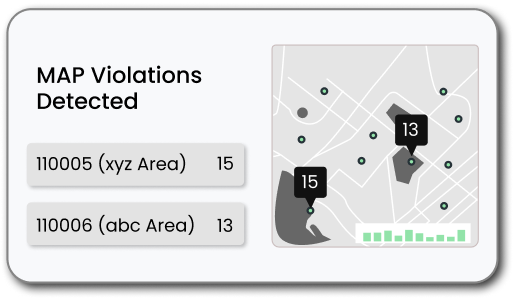Comprehensive Monitoring
This feature involves the real-time and continuous monitoring of product prices as they are advertised across different retailers and e-commerce platforms. The system compares these advertised prices with the minimum advertised price (MAP) set by the brand for each product. Additionally, historical data is analyzed to identify any recurring patterns or trends in MAP violations, providing valuable insights into the pricing landscape.
Custom Alert System
The alert system is a crucial component that ensures immediate responsiveness to MAP violations. It allows for the customization of notifications, so when a violation is detected, relevant parties are promptly informed through their preferred communication medium, such as WhatsApp notifications, email, text messages, etc. Violations can be categorized by severity, indicating the extent of the price difference compared to the MAP. Moreover, the system can distinguish between authorized and unauthorized sellers, directing attention to violations from unauthorized sources.
Analysis and Automation
The analysis and automation features provide valuable insights into the impact of MAP violations. Reporting and analytics tools generate detailed reports, shedding light on the extent of MAP violations and their effect on sales and brand positioning. The system's automation capabilities includes actions like sending warnings to violators. It should also be designed for seamless integration with existing software, scalability to accommodate a growing product range, and robust data security measures to safeguard sensitive pricing information and compliance with legal requirements.
Market Scope
This aspect of the system emphasizes the extent of its coverage. It enables the monitoring of MAP violations not only across various online marketplaces but also in geographic terms, specifically by tracking different pin codes. The system offers adaptability regarding the geographical scope, allowing brands to monitor violations at regional, national, or global levels, depending on their market reach and specific priorities.






